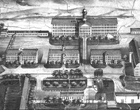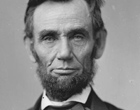It was the strength of the Democrats, in fact, that drove the growth of the Republican Party. From the perspective of the Republicans, the Democrats gained their influence mainly by fronting for slaveholding interests and coddling recent immigrants. In the process, Republicans charged, the Democrats handed the destiny of the nation to people who opposed many of the things that progressive people in the northern states believed in: unfettered access to the territories of the West, the use of the government to sponsor economic development, support for education, and the values of Protestant Christianity.
The Republicans, assembling a new party in the 1850s, opposed the spread of slavery more from a concern for the opportunities of white people than from a concern with the rights or freedom of black people. Americans brave enough to proclaim themselves abolitionists constituted less than 5 percent of the white population in the free states; many of those opponents of slavery were women and thus unable to vote. The Republicans repeatedly told the nation there was nothing they could do about slavery where it existed. The abolitionists viewed the Republicans with suspicion, even disdain, but Democrats nevertheless labeled all Republicans "black Republicans," antislavery zealots.
In the decade before Fort Sumter, in other words, the political realm in the United States had fallen into turmoil. Partly because of slavery, but also because of immigration, economic change, and the loss of established political leaders, old parties died and new parties came to life. These dislocations in party identity, in party leadership, and in electoral stability helped foster much-publicized and much-debated crises in Kansas and Nebraska, in the Dred Scott decision, and in the physical attack by Preston Brooks on Charles Sumner in Congress. Those events, in turn, helped weaken confidence in the political system, especially in the Democrats.




